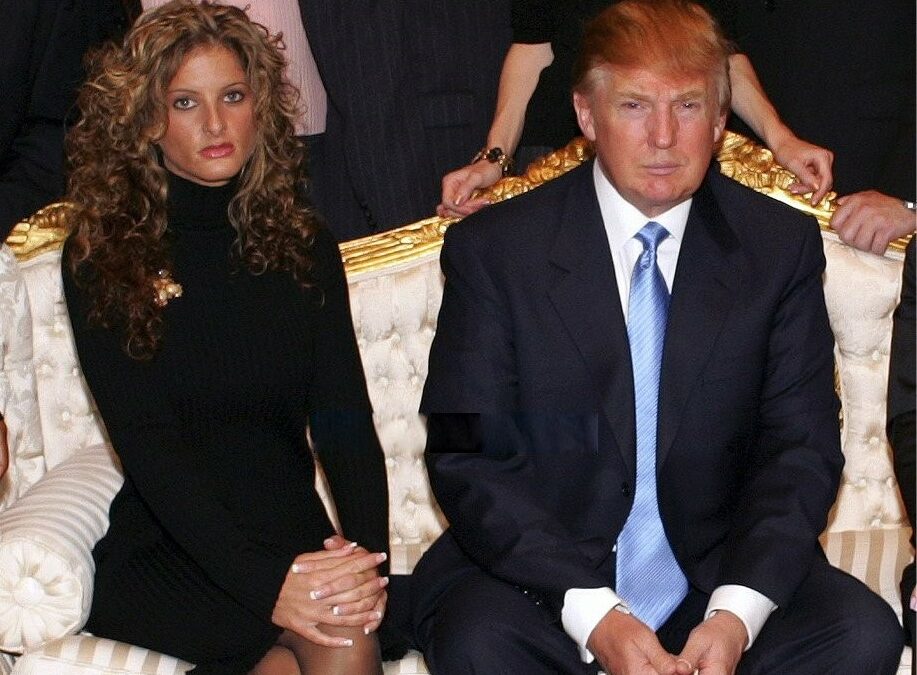For the first time, season-five Apprentice contestant Summer Zervos has laid out some of her evidence supporting claims that Donald Trump attacked her in a hotel room in 2007.
Zervos is suing Trump for allegedly defaming her by denying a sexual assault.
During the last presidential election, as Trump was under fire for boasting to Access Hollywood’s Billy Bush about grabbing women’s genitals, Zervos was one of many women to come forward to accuse Trump of repeatedly touching her, groping her, and kissing her against her will.
Trump denies it, but couldn’t prevent the lawsuit from moving forward.
In response to the argument that the Supremacy Clause of the U.S. Constitution barred a sitting president from being sued in state court, the judge responded that “no one is above the law.”
Now the case is headed to the home stretch and perhaps a trial right in the midst of the 2020 election.
The judge has also ordered parties involved in the case to undergo deposition by December 6.
At a hearing earlier in the week, Trump was directed to provide four potential dates for his deposition.
While discovery is a couple months from finishing, there are some interim disputes.
According to court papers filed today, the Trump Organization is attempting to designate nine pages of documents as “confidential” because they contain Trump’s former cell phone number.
Zervos’ lawyers respond that this is “absurd” and that Trump has already publicized his former cell phone to millions of Twitter followers during the 2016 campaign.
The biggest bombshells from today’s filing have to do with the evidence that Zervos says she has collected to “corroborate” her account of a meeting with Trump during the time in question and a sexual assault.
Those include emails to Trump’s secretary Rhona Graff to set up a meeting with him and responses from her.
There are also calendar entries for Trump and his bodyguard showing how they flew from Las Vegas to Los Angeles in Dec. 2007 and stayed at the Beverly Hills Hotel.
Many of these documents are from Trump Organization files.
Zervos’ attorney Mariann Wang writes calendar entries and itineraries “line up with Ms. Zervos’s detailed public account with striking accuracy.”
Further document are said to also corroborate Zervos’ account “with even more granularity,” but for the time being, information about what’s in those documents are redacted.
Given the instant controversy about the secrecy of Trump’s cell phone number, they could very well be phone records.
These documents, Zervos contends, are what the Trump Organization is now attempting to keep secret by misusing confidentiality designations.
Her motion is in support of de-designation of these documents. If she succeeds, she’ll be able to make them public in time for summary judgment briefing now scheduled for March.
Additionally, Zervos is laying out more evidence that she contends shows she came forward to complain about Trump’s behavior well before the Access Hollywood outtake scandal.
“Plaintiff reported Defendant’s assaults to family members and close friends immediately after they occurred and then again over the years,” states a memorandum. “She confronted Defendant about his inappropriate behavior, both in a phone call shortly after the assaults and in an email sent through his secretary Rhona Graff in April 2016. Plaintiff also considered taking more formal legal action with respect to Defendant many years ago and in fact reached out to multiple lawyers back in 2011, including to Gloria Allred, whose records reflect that contact.”
There’s more.
“Plaintiff also contacted Fox News in August 2015 and reported that Defendant had ‘invited me to a hotel room under the guise of working for him’ but had instead acted inappropriately toward her,” continues the memorandum. “The fact that Plaintiff sought legal counsel in 2011 and spoke about this to others including a news organization – years before the events of 2016 at issue in this case – strongly supports the inference that her core narrative is true.”
Zervos has also submitted a polygraph test that she says provides supporting evidence in the form of an examiner vouching for her honesty.
Additionally, she’s located photographs of a hard copy New York Times edition that contained an article about mortgages.
She says it’s “the very hard copy that Defendant gave her in December 2007 when he told her that she should default on her mortgage because defaulting on debt obligations was central to his business model.”
